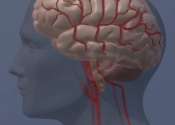Money is anything that is generally accepted as payment for goods and services and repayment of debts. The main functions of money are distinguished as: a medium of exchange, a unit of account, a store of value, and occasionally, a standard of deferred payment.
Nearly all contemporary money systems at the national level are fiat money systems. Fiat money is without value as a physical commodity, and derives its value by being declared by a government to be legal tender; that is, it must be accepted as a form of payment within the national boundaries of the country, for "all debts, public and private". By law, the refusal of a legal tender (offering) extinguishes the debt in the same way acceptance does. Some bullion coins such as the Australian Gold Nugget and American Eagle are legal tender, however, they trade based on the market price of the metal content as a commodity, rather than their legal tender face value (which is usually only a small fraction of their bullion value).
The money supply of a country is usually held to consist of currency (banknotes and coins) and 'deposit money' (the balance held in checking accounts and savings accounts). These demand deposits usually account for a much larger part of the money supply than currency. Deposit money is intangible and exists only in the form of various bank records. Despite being intangible, deposit money still performs the basic functions of money, as checks are generally accepted as a form of payment and as a means of transferring ownership of deposit money.
More generally, the term "price system" is sometimes used to refer to methods using commodity valuation or money accounting systems.









